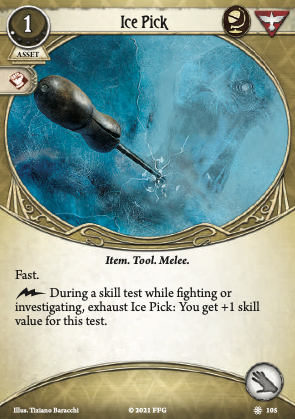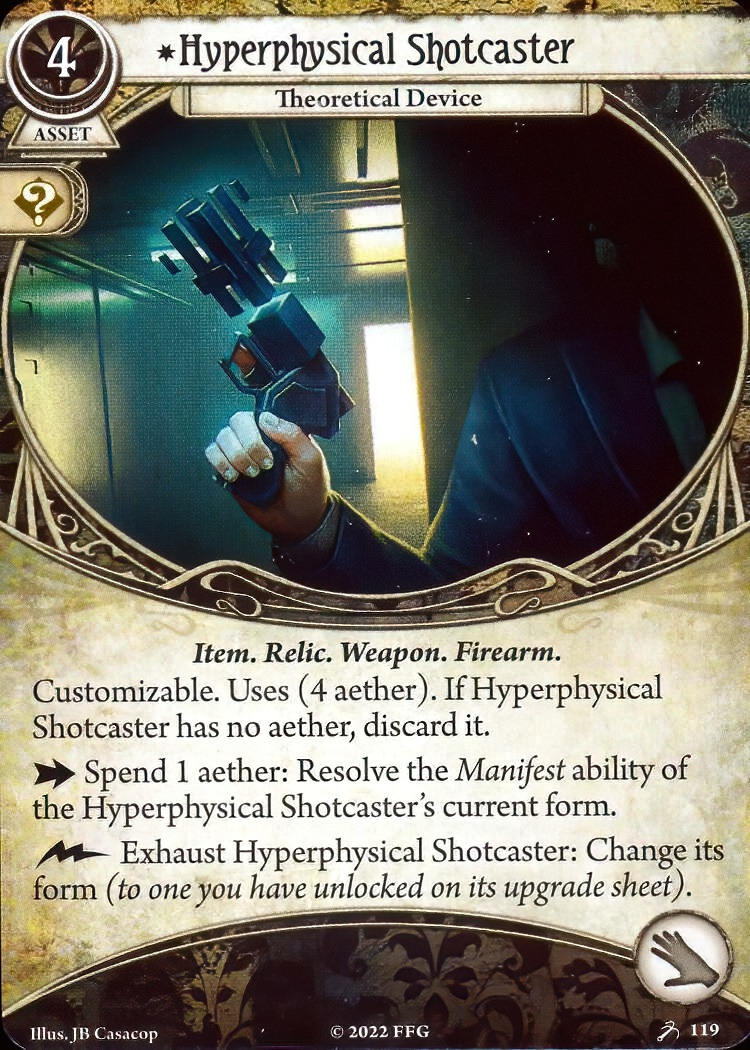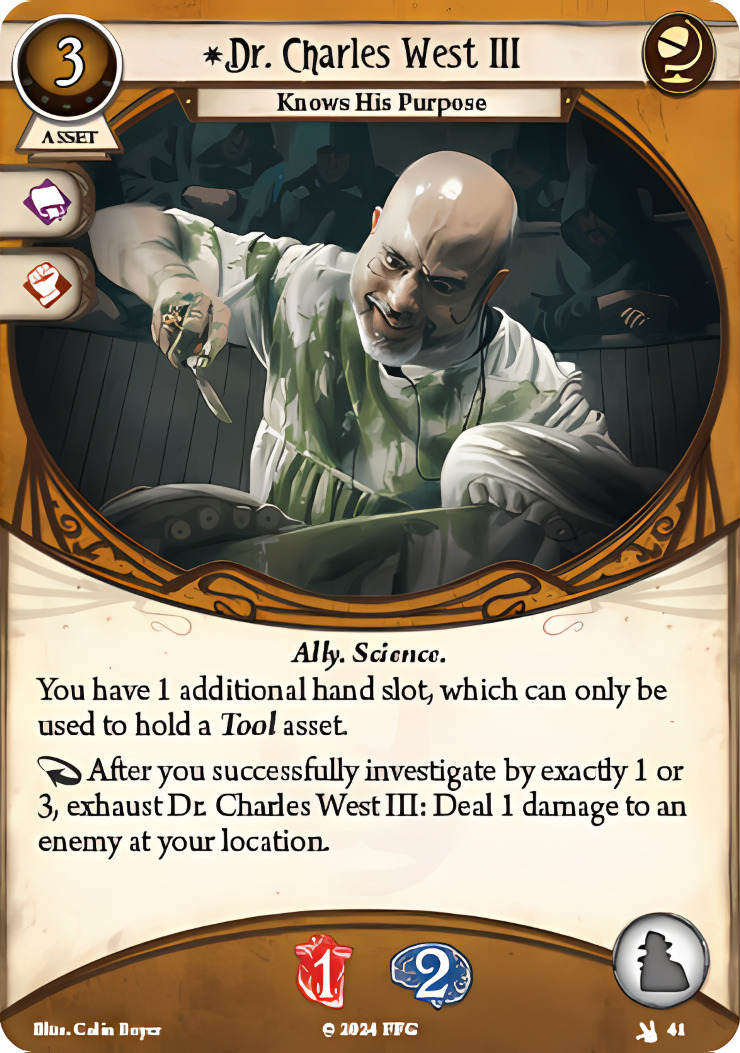
For 1xp, I think this is a underrated pick for a lot of investigators. It's versatile in both things you want to be doing with a hand slot, fighting & investigating. It's main benefit is that it's cheap, fast , and gives a +1 bonus each round. It's a great stepping stone to get to Ice Pick (3) a top tier item.
It's a mix between Magnifying Glass & Boxing Gloves, but is severely hurt by the fact that it's exhausted when used, so you only get the +1 bonus once per round. In a lot of ways it's similar to Ritual Candles which want to be paired with a dedicated Fight or Investigate ability like Fingerprint Kit or .45 Automatic. I personally like to pair it with Hyperphysical Shotcaster which can both investigate & fight!
While Ice Pick is limited to a single use per turn, which looks bad on paper, I was pleasantly surprised at how many times I only needed it for that one action as I was moving or playing cards with my other actions.



